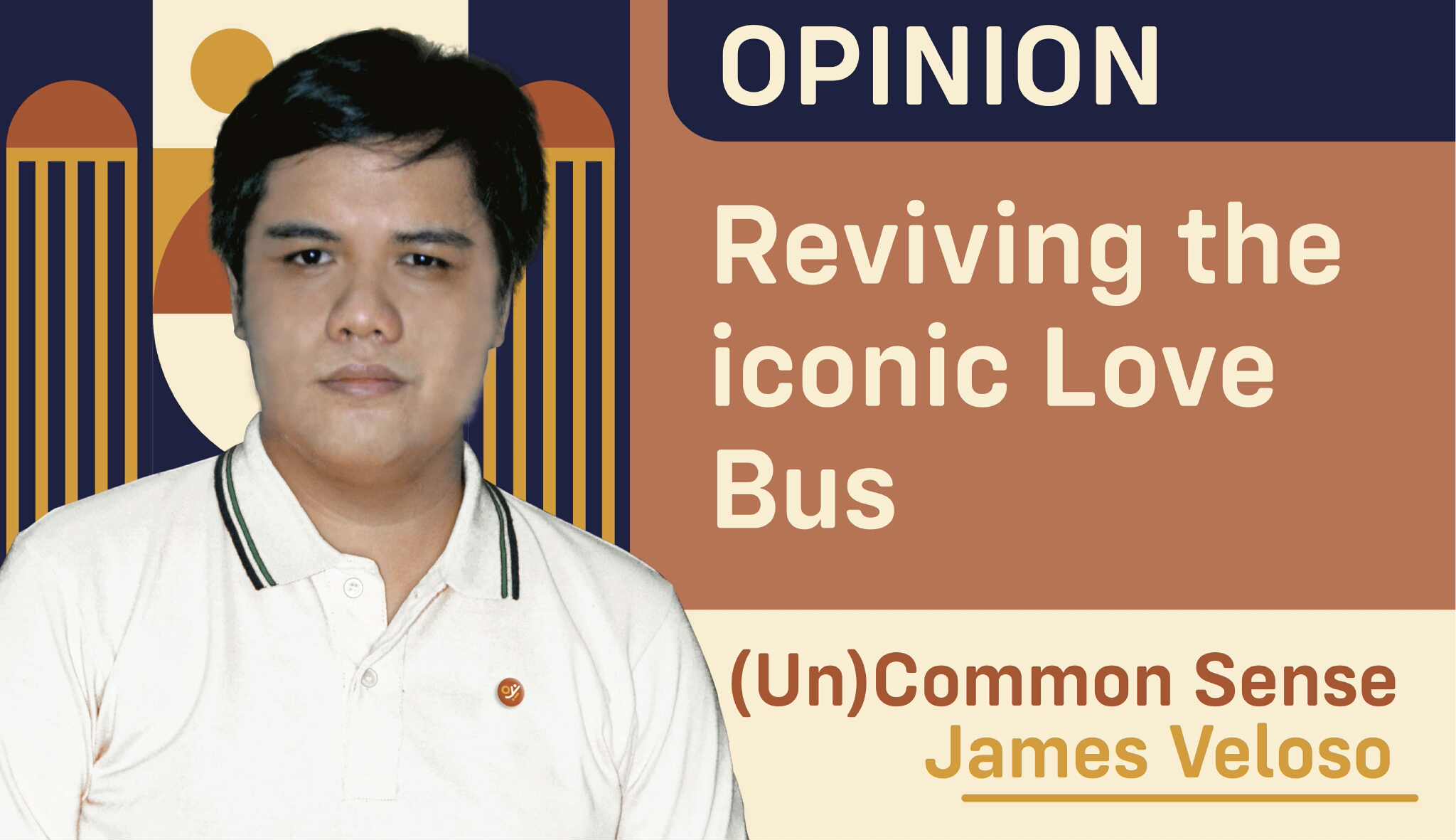One pledge of President Ferdinand “Bongbong” Marcos, Jr. in his latest State of the Nation Address (SONA) is the revival of the iconic “Love Bus” and making it a free service for Metro Manila commuters.
For those who may be too young to remember (and that, admittedly, includes me), "Love Bus" was a brand under the Metro Manila Transit Corporation, (MMTC), a government-owned transportation company put in charge during the Martial Law years of former President Ferdinand Marcos, Sr. in the 1970's to provide Metro Manila's residents with efficient mass transportation.
“Love Bus,” in fact, was one of the first airconditioned buses to ply Metro Manila’s streets.
Even then, public transport was becoming a headache in the rapidly-expanding metropolis. It was years before the Light Rail Transit (LRT) finally came to fruition, and jeepneys and private buses were proving to be inadequate to provide the needs of a growing population.
At that time when MMTC monopolized transport routes in Metro Manila, it provided efficient service to areas where private bus companies won’t even touch due to low ridership.
Not only that, during those days, airconditioned buses were the exception, rather than the norm, even at the MMTC. The “Love Bus” proved to be a popular mode of transportation among the newly-affluent workers of Metro Manila as well as of tourists.
It wouldn’t take long, however, before the Love Bus – and MMTC itself – faded into history. Economic challenges during the 1980’s, as well as the Marcos, Sr. administration’s move in 1980 to foster a more competitive transport system by allowing large consortiums, ate into the MMTC’s operations. Its fleet sat idle; its routes were cut back. The succeeding administration of President Corazon Aquino continued the operations of the Love Bus, but with increasing losses.
Finally, around the 1990’s, MMTC itself ceased as an entity when the administration of former President Fidel Ramos auctioned off its remaining assets and buses.
The buses were divided among four cooperatives and companies run by former MMTC employees (all of which went bankrupt or were bought out; the last one, the DCOMMP Multi-Purpose Transport Service Cooperative, ceased operations when HM Transport bought out the line in 2013).
-o0o-
Why did the MMTC ultimately fail in its quest to achieve its goal of providing efficient mass transport for Metro Manila’s residents?
It would be easy to lump the sad saga of MMTC with all the other stories of mismanagement and corruption during the Marcos, Sr. administration, but for me, it’s a far more complicated story.
Transport ventures, as I’ve explained earlier in this column, are largely money-losers. It’s hard to strike a balance between making a profit and providing commuters with affordable service, which, we must point out, is the end goal of mass transport
Coupled to this were the economic crises that hit the Philippines during the late 1980’s, along with the oil embargo of the late 1970’s and spiraling prices of petroleum products that proved detrimental to MMTC’s services.
So my reaction to PBBM’s pledge to revive the Love Bus? It depends on this single question: the government shoulder the high costs of running free public transport, even with the cumulative benefits to the national economy?
#WeTakeAStand #OpinYon #OpinYonColumn #UnCommonSense
